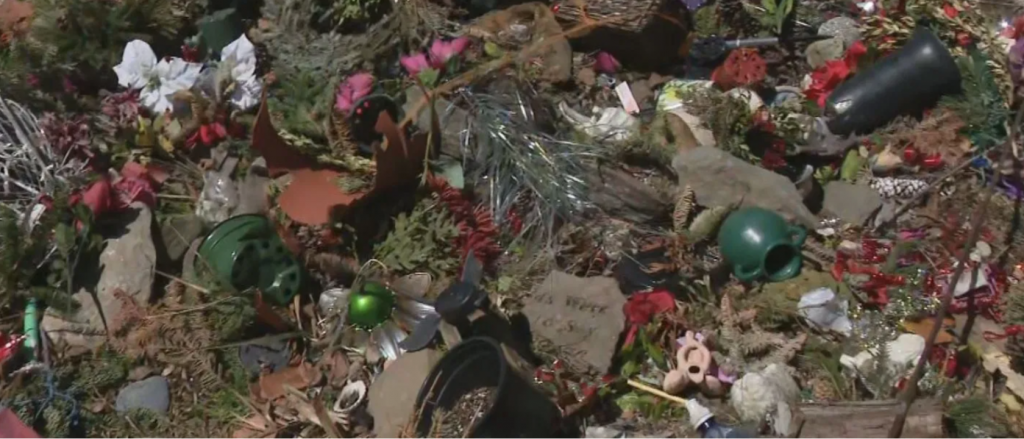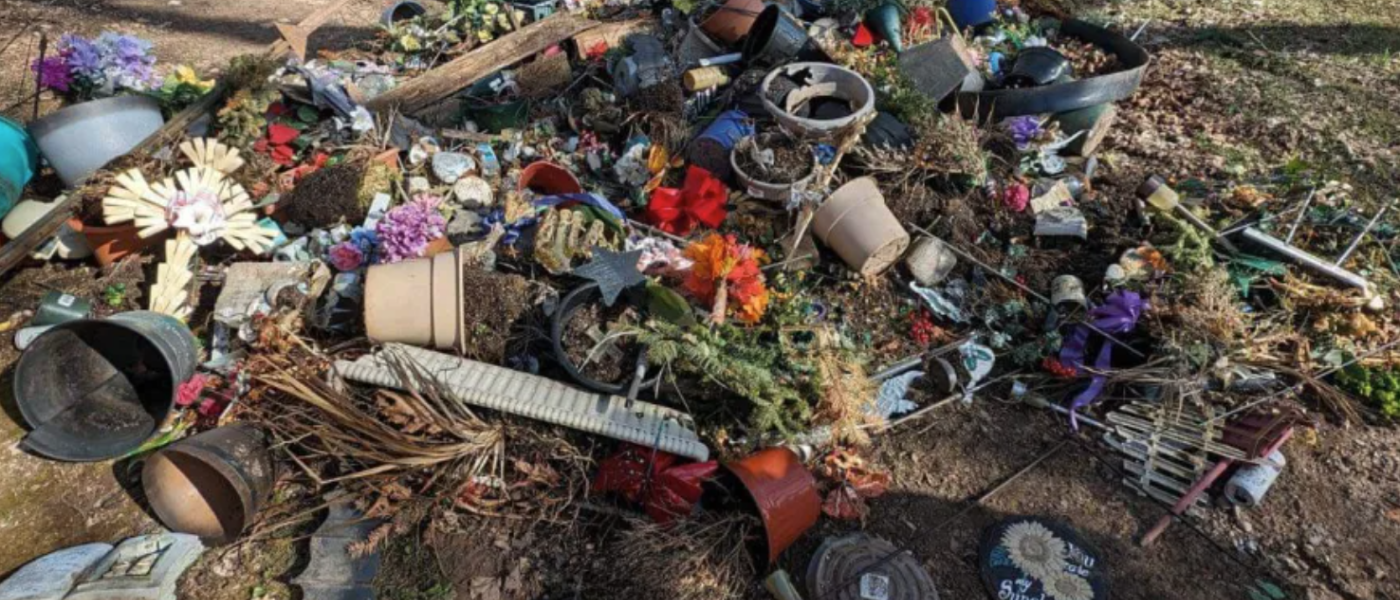Keepsakes or Clutter? More and More Cemeterians Facing Fallout From Cleanup Efforts
“Outraged,” “upset,” “disgusted,” and “furious.” These are words no deathcare professional wants to hear from a family — let alone see on the five o’clock news — in regards to the care they provide. Yet, these are the exact sentiments families are sharing more and more often when cemeteries enforce their decoration policies.
Just check out these recent headlines:
- Families upset after items were removed from loved ones graves
- ‘Never seen anything like this’: Families outraged after cemetery dumps grave memorials
- Cemetery enforcing current rules leaving families ‘angry and upset’
There’s a common theme running through each of these stories. Families are leaving personal items at gravesites — despite clearly posted rules and regulations — and getting upset, disgusted, and furious when these items are removed and discarded by cemetery groundskeepers. If they’d just read the signs, opened the notice they were mailed, or consulted the cemetery website, they’d know that they’d violated the protocol and the cemetery was just following through with its promised maintenance, right?
Unfortunately, there’s another commonality in these articles. In virtually every case, cemeteries are waiting so long to enforce their rules that the clean-up comes as a shocking surprise. Equally shocking to the families is the sight of the meaningful mementos — including statues, toys, American flags, and photos — left for their departed loved ones unceremoniously discarded in a garbage pile or dumpster.
The families’ view
Every story echoes similar themes — some more extreme than others. For example, in late April, an Alabama woman was distressed to find that mementos that had been on her son’s grave for 19 years had been removed. She said she had received no notice from the cemetery that the clean-up would take place or that decoration policies had changed.
Two weeks earlier, families with loved ones resting in a New York cemetery found their trinkets and memorabilia in a pile beside a maintenance building. The church-owned cemetery said they’d placed a notice in the church bulletin a few weeks earlier to notify families of the clean-up day. A local news station reported, however, that most of the families do not attend that church.

Last March, a granddaughter found that items she’d placed on her grandparents’ graves in Texas two years earlier were missing. She said she knew about the rules, but they’d never been enforced. She also told a news outlet that she “wishes they would have been informed and the situation would have been handled with more sensitivity and care.”
Owners of plots in another Alabama cemetery have shared that they were also aware of the rules, but there were so many inconsistencies in what was posted and what was actually enforced, they didn’t see any problem in leaving knick-knacks at gravesites. One woman pointed out that some of the removed toys on her son’s grave were actually placed there by cemetery staff members; another cited the lack of regular mowing as a contradiction of the cemetery’s promised maintenance.
Communication and consistency are key
Anyone can easily find examples just like these in the news — there have been dozens just within the last 12 months. When it’s all said and done, though, each and every instance of irate families and bad publicity could have been avoided if cemetery staff had only done two things: enforce the rules consistently, and communicate with families frequently.
Fortunately, there are several examples of cemeteries that have done exactly that — communicated their policy clearly and via multiple channels and performed maintenance on a consistent basis.
For instance, a Canadian township that manages three public cemeteries used the local news to warn families in mid-March to remove “adornments and decorations” before April 8 because they would be carrying out their annual clean-up. They also shared that those items would be kept on-site for 60 days for family pick-up.

Similarly, a Wisconsin cemetery shared a notice on local television in early March that they’d be doing their biannual cemetery clean-up in two weeks, and asked families to remove their items prior to that date. They also explained exactly why the maintenance was important, saying that “Things that look nice and beautiful the day you put them get snowed on, rained on, wind-blown,” and that “what becomes somebody’s decorations at a gravesite once it gets weathered and blows away, it is somebody else’s trash at theirs.”
Learn from others’ mistakes
Even though your cemetery may have giant signs at the entrance listing rules and regulations regarding decorations and personal items on the grounds, it truly pays to go above and beyond when it comes to enforcing them.
Here are a few ideas for best practices, gleaned from the examples above:
- Make plot owners aware of the decoration guidelines when they purchase their plots, and again after burial, or at least when the monument is installed.
- Whenever possible, explain why such rules are in place; most people appreciate learning the “why” behind a decision.
- Create, publicize, and stick to a specific clean-up schedule, whether it’s quarterly, twice a year, or annual.
- Notify plot owners, family members, and the community a few weeks before the clean-up effort via email, mail, social media, your website, and/or public service announcements in the local television, radio, and print media.
- Take care not to break or destroy memorabilia as it’s removed from the plot; treat it with the respect and reverence with which it was placed there.
- Don’t make excuses for your lax enforcement of the rules; instead, own up to the issue and vow to do better, reiterating what will take place the next time, and when.
- When items are retrieved from a gravesite, do better than putting them in a garbage pile or dumpster. In fact, consider holding the items in storage for 30 to 60 days for families to pick up; even though storage space may be limited and this adds to your list of things to manage, your kindness and consideration will be noted.
Remember: no one likes surprises, especially negative ones. Plus, every interaction you have with a family is one more opportunity to gather their feedback, share your appreciation for their patronage, and perhaps even make a sale!




